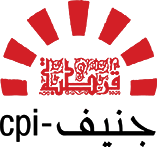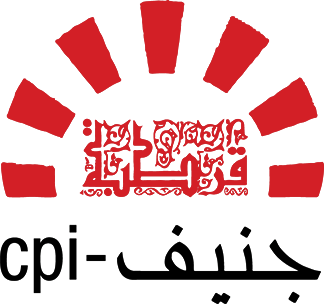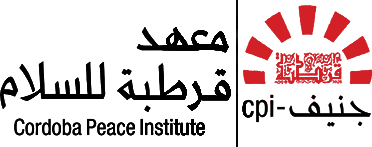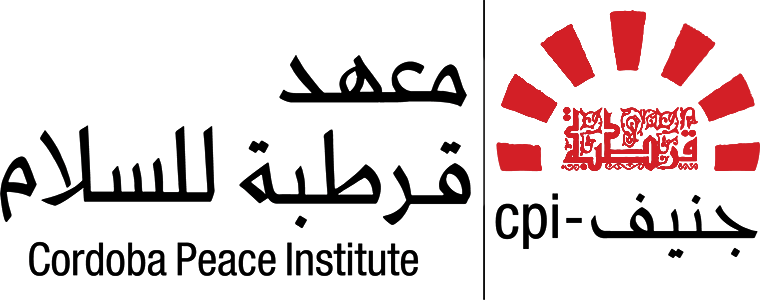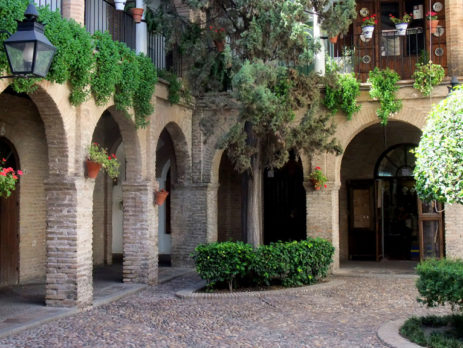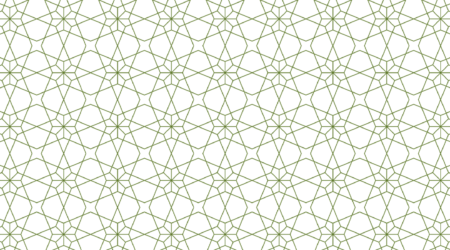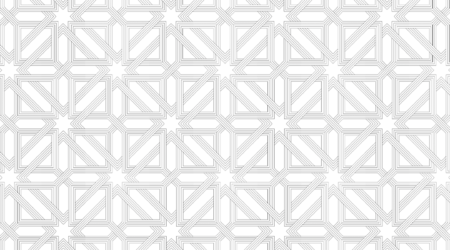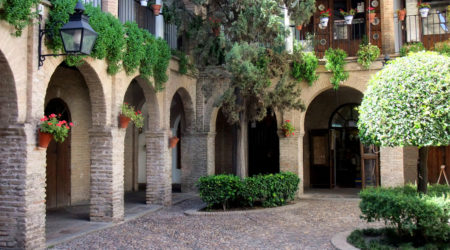The Cordoba Update 21/2016
|
The bi-weekly CORDOBA UPDATE is the product of continuous monitoring work, carried out by the Cordoba Foundation of Geneva team. By analysing and reporting on key events and trends in the Foundation’s areas of interest, we aim to draw readers’ attention to pertinent developments in North Africa, the Sahel, West Asia and Europe, which are not always covered in ‘mainstream’ media. In addition to sharing news from these four regions, the Cordoba Update is an opportunity for the Foundation to provide regular updates on its publications, events and other developments. In line with the programmes and projects funded by partners of the Cordoba Foundation of Geneva, updates and information are included under the following themes:
For questions and/or feedback regarding the content and form of the Cordoba Update, please contact Sarah Franck: sarah.franck@cordoue.ch Le CORDOBA UPDATE est un bimensuel qui présente le travail continu de suivi réalisé par l’équipe de la Fondation Cordoue de Genève. Par l’analyse des événements et tendances qui concernent les domaines d’intérêt de la Fondation, nous visons à attirer l’attention de nos lecteurs sur les développements pertinents en Afrique du Nord, dans le Sahel, en Asie de l’Ouest et en Europe, une actualité qui n’est pas toujours couverte dans les médias dits ‘traditionnels’. Outre le partage de l’actualité de ces quatre régions, le « Cordoba Update » est un moyen pour la Fondation de fournir des mises à jour régulières sur ses publications, événements et autres développements. En accord avec les programmes et projets financés par les partenaires de la Fondation Cordoue de Genève, les mises à jour et informations concernent les thèmes suivants :
Pour des questions et / ou des commentaires concernant le contenu et la forme du Cordoba Update, veuillez contacter Sarah Franck : sarah.franck@cordoue.ch |
ISLAMIST-SECULAR RELATIONS / RELATIONS ENTRE SÉCULIERS ET ISLAMISTES
No contribution on this topic
TRANSITION AND POLITICAL PARTICIPATION / TRANSITION ET PARTICIPATION POLITIQUE
Cross-regional, 11.11.2016: Surur, Leading Scholar of Haraki Salafism Dies
One of the major developments in the Islamist movements landscape this year was the death of Sheikh Muhammad Surur, this November. Surur started in the Muslim Brotherhood school of thought then gradually moved into the Haraki Salafi activist current within Salafism. Salafi Harakis object to absolute submission to the ruler. They combine the Salafi creed with Muslim Brotherhood activism and organisational strategy. Unlike the Purist Salafi current, Haraki Salafis support political engagement in order to change the Muslim community through gradual political reform and civic engagement. Sururi Salafis also pay special attention to international relations. Sheikh Surur is considered one the main ideologues of Haraki Salafism, which he embraced after he left Syria, the countrz of his birth, and took up residence in Saudi Arabia, where he encountered exiled Muslim Brotherhood members who had fled Jamal Abdel Nasser’s repression in the 1960s. Sururi Salafis had a difficult relationship with the Saudi ruling establishment. In 1990, following Saddam Hussein’s invasion of Kuwait and Riyadh’s request of US protection and liberation of Kuwait, Sururi scholars disagreed with the ruling establishment. The latter’s crackdown on them was merciless. They then had to go into exile or remain in prison. In their exile in London they set up Al Muntada Trust, which established a vast network of schools, publications, charities, NGOs, medical relief aid action, and radio stations, especially in Africa. Some Haraki Salafi groups decided to set up political parties in the wake of the 2011 uprisings. This was the case of Al-Rashad Party in Yemen, for example. In Saudi Arabia, the current is known as Al Sahwa (the awakening) and scholar Salam Al Aouda is one of the prominent figures of this activist Salafi current that calls for political reform. Al Aouda was in house custody under the late King Abdullah. One month after King Salman was enthroned he lifted the house arrest order. Surur died in Doha and his death was felt throughout the Muslim world.
Links for more information:
http://cordoue.ch/images/stories/pdf/Papers/CFG_Salafiscape.pdf (Salafi-scape paper by CFG)
https://en.wikipedia.org/wiki/Muhammad_Surur
http://www.aljazeera.net/encyclopedia/icons/2016/11/13/
Egypt, 5-10.12.16, Sisi: God is on our side
Referring to terrorist groups, Egypt’s Abdel-Fattah el-Sisi said, “They want to destroy and terrorize the children, the women, and the elders.” He added “I want to tell them that God is on our side and those who can defeat God can defeat us.”
Egypt’s Abdel-Fattah el-Sisi defended the tough economic measures undertaken by his government, saying there was no alternative in the face of a financial crisis. “Structural reforms” are an imperative for Egypt, he said on Thursday (9 Dec.) during a speech in honor of the upcoming birthday of the Prophet Muhammad, while acknowledging that the newly implemented measures are no “picnic.” He added that the country’s currency, the pound, was not valued fairly against the dollar but that the exchange rate would reach equilibrium after a few months. In the address, el-Sisi repeatedly called for a new Muslim religious discourse, making the fight against extremism a priority. He said religious extremism poses a “huge intellectual battle” in addition to the “security and military measures [needed] to combat terrorism.” The Washington Post wrote that “the austerity measures were hailed by the IMF and the business community, but could spark a popular backlash against el-Sissi.”
A week ago, a ruling by the Supreme Constitutional Court (SCC) branded Article 10 of the law regulating peaceful protests as unconstitutional. The annulled article had given the Interior Ministry the authority to ban any protest it deemed a threat to public order. The ruling came in response to a lawsuit filed by leading rights lawyer Khaled Ali in which he petitioned for articles 8 and 10 of the protest law to be annulled on the grounds that they violated the constitution.
Meanwhile, an overwhelming majority of the Egyptian parliament passed legislation regulating nongovernmental organizations (NGOs), with virtually no debate. Amr Hamzawy, a senior associate at the Carnegie Endowment for International Peace, wrote that “the vote once again emphasizes how the rubber-stamp role of parliament enables Egypt’s new autocracy under President Abdel Fatah al-Sissi’s government.” He added “similar to legislation passed in the past three years such as the protest law and the anti-terrorism law, the new legislation practically eliminates freedom of association and freedom of expression, both of which are enshrined in the Egyptian constitution. It subjects NGOs to draconian government control, threatens to wipe out civil society and leaves citizens who engage in peaceful activism in paralyzing fear of immediate state repression.”
Meanwhile, security forces have arrested the son of ousted Islamist President Mohammed Morsi. The official says that Osama Morsi was wanted by authorities, without providing further details. The state-run news website Al-Ahram reported the arrest, saying Osama is accused of inciting violence.
Finally, Minister of Foreign Affairs Sameh Shoukry said that the goal of his visit to the United States is to follow up on bilateral relations, and for initial communication with the administration of US president-elect Donald Trump. Shoukry delivered a speech at a forum organized by the Brookings Institute’s Saban Centre for Middle East Policy. In his speech, Shoukry said that Egypt’s vision of a solution to the current turmoil in Syria lies on two main pillars. The first is to preserve national unity and territorial integrity and to prevent the collapse of Syrian institutions. The second is to support the aspirations of the Syrian people to rebuild Syria through a political solution. Shoukry also touched upon the turmoil in Libya and Yemen, adding that the Palestinians can no longer be denied their right in an independent state.
Links for more information:
http://www.albawabaeg.com/90632
http://english.ahram.org.eg/NewsContent/1/64/251617/Egypt/Politics-/
https://www.washingtonpost.com/world/middle_east/egypt-president-says-his-economic-reforms
https://www.washingtonpost.com/news/global-opinions/wp/2016/12/06/new-ngo-legislation-takes-egypt
http://weekly.ahram.org.eg/News/19097/17/Judges-given-final-say-on-protests
http://weekly.ahram.org.eg/News/19094/17/NGO-law-approved-by-parliament
https://www.washingtonpost.com/world/middle_east/egyptian-authorities-arrest-son-of-ousted-president-morsi
http://weekly.ahram.org.eg/News/19099/17/Getting-ready-for-President-Trump
http://www.dailynewsegypt.com/2016/12/04/us-visit-for-initial-communication-with-trump
Mali, 11.12.2016 : Appel pour le financement du programme de désarmement, démobilisation et de réinsertion pour la mise en œuvre de l’Accord d’Alger
Des élections municipales ont eu lieu au Mali le 20 novembre mais ont été largement boycottées par le CMA dans le nord du pays. La CMA avait proposé, le 11 novembre, d’achever l’installation des autorités intérimaires pour le nord avant les élections locales. Cependant, des membres de la CMA ainsi que d’autres groupes Azawadiens comme le Mouvement pour le salut de l’Azawad (MSA), formé en septembre dernier ; Le Congrès pour la justice dans l’Azawad (CJA), lancé en octobre dernier ; et le CMFR2 n’arrivent toujours pas à se mettre d’accord sur les listes proposer pour les autorités intermédiaires. Il y a eu un faible taux de participation et les élections n’ont pas eu lieu à Kidal, Taoudeni, et Ménaka ; alors que les régions de Gao, Timbuktu et Mopti ont pu organisé les élections partiellement. Ces élections municipales ont été entachées par des attaques commises par des groupes affiliés aux mouvements Ançar Dine et au Front de libération du Macina (FLM). Ces attaques ont visé des prisons du nord Mali dans l’objectif de libérer des détenus, membres de leurs mouvements.
Alors que la mise en œuvre de l’Accord d’Alger de juin 2014 est encore hypothétique, l’Etat malien demande aux bailleurs de fonds une aide de 25 millions de dollars sur un total de 50 millions pour l’application du plan de désarmement et de la réinsertion des anciens combattants. Les autorités maliennes parlent d’un programme qui concernerait 6000 ex-combattants.
Jusque-là, les bailleurs demeurent assez réservés, ce qui compromet l’avenir de l’Accord et la stabilité dans le nord du pays.
Liens pour plus d’informations :
http://www.maliweb.net/la-situation-politique-et-securitaire-au-nord/programme-de-desarmement
http://www.maliweb.net/la-situation-politique-et-securitaire-au-nord/accord-paix-reconciliation
http://www.maliweb.net/societe/reconciliation-nationale-vaine-expression
http://www.maliweb.net/contributions/negocier-terroristes-fausse-bonne-idee
http://mali-web.org/nord-mali/programme-ddr-6-000-ex-combattants-concernes
http://www.malinet.net/alerte/nomination-des-autorites-interimaires
http://www.lemonde.fr/afrique/article/2016/11/22/au-mali-violences-et-desaffection
Liban, 12.12.2016 : Formation du gouvernement
Bien que le siège de la présidence ait été finalement attribué à Michel Aoun il y a six semaines après presque deux ans et demi de vacance, le chemin vers la stabilité politique reste escarpé en attendant la formation du nouveau gouvernement. Cette tâche qui revient naturellement au Président avec l’aide du Premier Ministre, Saad Hariri, s’avère difficile en tenant compte du jeu des alliances politiques et des intérêts personnels de chaque prétendant aux différents postes. En effet, la distribution des portefeuilles ministériels reste le point de contention principal, et c’est seulement après plusieurs jours de négociations que le poste très convoité du ministère des Affaires Publiques a été proposé par Nabih Berri au parti de Suéeiman Frangié, député et chef du mouvement Marada. Ce poste est, depuis quelques semaines, le cœur d’un conflit entre Marada et le parti des Forces Libanaises, dirigé par Samir Geagea, qui l’ambitionnent tous les deux.
Cependant l’annonce de l’offre n’est pas encore à prendre comme définitive, puisque comme mentionné plus haut, il a été suggéré par Nabih Berri qui est le Président de la chambre des députés, et doit donc être confirmé par Michel Aoun et Saad Hariri. Annonce qui n’est pas si prévisible considérant l’alliance entre Michel Aoun et Samir Geagea. De plus, les liens qui unissaient les deux partis chrétiens (Courant Patriotique libre pour Michel Aoun et Marada pour Suleiman Frangié) se sont effrités depuis 2015 suite au soutien qu’a apporté Saad Hariri à Suleiman Frangié pour la présidentielle en 2015. Hassan Nassrallah, lors d’un discours donné la semaine dernière, a exprimé son souhait de réconciliation entre ces deux partis, qui sont alliés au Hezbollah. Le Patriarche maronite Bechara al Rahi a exprimé le même désir lors d’une rencontre dimanche dernier.
Malgré ces désaccords, certains analystes ainsi que plusieurs personnalités politiques restent optimistes quant à la formation du gouvernement qu’ils annoncent comme très proche, probablement avant les fêtes de fin d’année.
Liens pour plus d’informations :
http://www.naharnet.com/stories/en/221704-franjieh-meets-hariri
http://www.naharnet.com/stories/en/221840-hariri-says-berri
http://www.naharnet.com/stories/en/221843-nasrallah-says
http://www.naharnet.com/stories/en/221869-hizbullah-insists
http://english.aawsat.com/2016/12/article55363688/lebanon-cabinet
http://www.naharnet.com/stories/en/221966-franjieh-says-berri
http://www.naharnet.com/stories/en/221950-franjieh-says-ready
http://www.naharnet.com/stories/en/221989-lf-not-concerned
http://www.lorientlejour.com/article/1023183/on-se-rapproche
http://www.lorientlejour.com/article/1023185/frangie-attend-lappel
http://www.naharnet.com/stories/en/221944-report-parties-mull-holding
http://www.naharnet.com/stories/en/220786
http://www.naharnet.com/stories/en/221178
RELATIONS BETWEEN COMMUNITIES OF DIFFERENT ETHNIC, CULTURAL AND RELIGIOUS AFFILIATIONS /
RELATIONS ENTRE COMMUNAUTÉS DE DIFFÉRENTES AFFILIATIONS ETHNIQUES, CULTURELLES ET RELIGIEUSES
Iraq, 26.11.16: Legislation on Popular Mobilisation Forces Causing Disquiet in Iraq
On 26 November, the Iraqi parliament voted in favour of official recognition and full legal status for the Hashd al-Shaabi (the Popular Mobilisation Forces), effectively consecrating the paramilitary force as the nation’s reservists. The law envisages a maximum of 50,000 fighters, of which 15,000 are to be from the Sunni community. The new law also grants members of the Hashd the same salaries and pensions currently afforded to the military and police force.
The new bill stipulates that the Hashd are directly responsible to the office of the Iraqi Prime Minister, while the Defence Minister has no authority over its diverse units. Some have taken this to indicate that, by legalizing the Hashd forces, the incumbent Prime Minister, Haider al-Abadi, is seeking to consolidate his political position over his rivals. Consequently, one concern is that the Hashd could become a tool for Iraq’s powerful politicians to use in settling scores.
The Hashd was formed in 2014 as a force to confront the so-called Islamic State group in Iraq. Some see the Hashd as a potentially unifying force in the war-torn country, arguing that the new legalisation on the forces will make it a more accountable national body. According to sources, the Hashd comprises Shia, Sunni, Christian and Yazidi units, however groups linked with the Hashd have also been reported to target civilians in extrajudicial killings – in particular members of the Sunni minority. Human Rights Watch has documented summary killings, enforced disappearances, torture, and the destruction of homes by groups affiliated with the Hashd. Indeed, cynics question whether al-Abadi is able to exert any control over the already-powerful and diverse groups that constitute these forces, the most powerful units of which hold divergent agendas.
Despite the controversy that surrounds them, the forces that make up the Hashd are hugely popular in parts of Iraq, due to their effective role as fighters against the so-called Islamic State group. While the recent government legislation has given the Hashd an official mandate to operate within the country, observers have noted that the forces have long operated in Iraq, with full government support. The vote on official recognition of the Hashd comes as the offensive continues against the so-called Islamic State in northern Iraq, particularly in Mosul and Tal Afar. The Hashd units, which encompass as many as 150,000 fighters, have played a significant role in the Iraqi-led offensive that is supported by an international coalition.
Regional commentators foresee that the new legislation on the Hashd will aggravate sectarian tensions in Iraq, “by cementing the political and military influence of this alliance of largely Shia militias, as well as that of Iran, which backs most of them.” One expert noted that these tensions were evidenced in the parliamentary vote on the new law, where all Shia blocs approved the legislation, while many Sunni MPs boycotted the session. The New Arab reported that the bill was supported by 208 of 327 members of the Iraqi parliament, with strong rejection from Sunni Arab politicians and lawmakers, who called the legislation evidence of “dictatorship” by the country’s Shia majority. Sunni parliamentarian Ahmed al-Masary said that the bill raises concerns about the equal participation of Iraq’s numerous communities in the nation-building process. Sunni politicians also apparently objected to the law because of the way it was passed, notably because the timing of the bill could have been better; “if the government waited until the extremist Islamic State, or IS, group had been completely pushed out of Iraq, then all relevant parties could have had their say.”
Writing for Niqash, Ibrahim Saleh has also noted that the move to officially recognise the Hashd was controversial among Sunni parliamentarians because it legitimises the approximately 30,000 Sunni fighters currently operating as part of the volunteer forces. According to Saleh, the Sunni volunteer militias originate from tribal networks in northern Iraq, where whole clans have been mobilised to fight against the so-called Islamic State group there. The new law, which recognizes these volunteers as a legal entity, affords them the power and legitimacy to run in local elections, potentially eroding the voting base of Sunni parliamentarians currently based in Baghdad. In the upcoming provincial elections, slated to be held in 2017, Saleh foresees the emergence of “new and powerful parties with links to the tribal and volunteer militias,” from all Iraqi communities.
Links for more information:
https://www.alaraby.co.uk/english/news/2016/11/26/iraqi-parliament-recognises-shia-militias
http://www.alsumaria.tv/news/187040/
https://www.alaraby.co.uk/english/comment/2016/12/2/fatwas-and-farces
http://www.almadapaper.net/ar/news/519961/
http://www.middleeasteye.net/news/iraqs-parliament-legalizes
http://www.al-monitor.com/pulse/originals/2016/11/pmu-iraq-security-forces
http://www.middleeasteye.net/columns/unleashing-untameable-monster-iraqi
http://www.middleeasteye.net/columns/once-they-have-defeated-iraqi-militias
http://www.niqash.org/en/articles/politics/5421/Iraq%E2%80%99s-New-Militias-Law
Mauritanie, 10.12.2016 : Le casse-tête des associations et partis non-reconnus
Au mois d’octobre dernier, juste après la fin du dialogue politique inclusif lancé par le pouvoir (en l’absence de l’opposition), le gouvernement mauritanien a officiellement reconnu deux partis, nouvellement créés.
Le premier se nomme l’Appel à la Nation (Nidaa Al Watan) et a été initié par un jeune activiste politique, Daoud Ould Ahmed Aicha, issu de l’aristocratie guerrière (arabe), qui militait jusque-là dans les rangs du parti au pouvoir, l’Union pour la République (UPR). Certains le considèrent comme le « Le Pen de Mauritanie ». Le second parti est l’Alliance Nationale pour les Droits et la Construction des Générations, de Saad Ould Louleid, transfuge de l’Initiative de Résurgence du Mouvement Abolitionniste (IRA Mauritanie). L’homme qui avait milité dans les rangs du parti PRDS (1992-2005) avant d’adhérer à l’UPR, en sa qualité de membre fondateur et de s’engager ensuite au sein de l’IRA, avait été emprisonné en 2014 pour participation à une association non autorisée. Saad Ould Louleid avait occupé la position de Porte-parole de Biram Ould Dah Ould Abeid à la présidentielle de 2014. Selon un analyste politique « il est perçu comme l’incarnation de l’aile des intellectuels haratines opposés à toute alliance entre Haratines et Négro-mauritaniens contre la domination arabe ».
Si la reconnaissance du parti de Daoud pose certains problèmes, celle de Saad en pose d’autres. Ainsi, d’autres partis politiques et organisations de la société civile, s’identifiant surtout à la communauté Négro-mauritanienne peinent à jouir de la liberté de réunion et d’association, pourtant garantie par l’article 10 de la Constitution. Soumis à un régime d’autorisation qui ne dit pas son nom, ces structures voient leurs activités réduites, voire interdites. C’est le cas des, Forces Progressistes pour le Changement (FPC, ex-FLAM), une formation politique non reconnue.
Liens pour plus d’informations :
http://www.cridem.org/C_Info.php?article=691956
http://lauthentic.info/Politique/article/Nouveaux-partis-politiques
https://lesmauritanies.com/2016/10/15/mauritanie-ribat-el-watani-un-nouveau-parti
http://maurijet.info/article/1856
Tchad, 06.12.16 : Des morts dans des affrontements entre éleveurs et agriculteurs au nord du pays
Selon des sources locales à Abéché (est), onze personnes sont mortes, le 10 décembre 2016, dans l’est du Tchad dans des affrontements entre éleveurs et agriculteurs. Ces violences ont éclaté lorsque des chameaux ont envahi le champ d’un agriculteur au village de Tiré, non loin de la ville d’Abéché. Le bilan est de huit morts parmi les agriculteurs et trois parmi les éleveurs. Le conflit entre agriculteurs et éleveurs est récurrent au Tchad, pays à vocation agropastorale et ces affrontements dramatiques sont très fréquents dans les pays de la zone. Ces derniers font de nombreuses victimes et enveniment les rapports entre les communautés, ce qui en fait une ligne permanente de tension.
Récemment, au Niger et au Nigéria, des affrontements similaires avaient été signalés. Les Etats de la région, incapables de gérer convenablement ces conflits se fragilisent de plus en plus en n’apportant que des solutions parcellaires qui occultent le fond des problèmes.
Liens pour plus d’informations :
http://tchadinfos.com/tchad/un-affrontement-entre-agriculteurs-et-eleveurs
http://www.jeuneafrique.com/383200/politique/tchad-onze-morts-affrontements
http://www.jeuneafrique.com/370486/societe/niger-18-morts-affrontements
Slovaquie, 12.12.16 : Le parlement fait passer une loi rendant difficile la reconnaissance de l’islam comme religion officielle
Mercredi 30 novembre 2016, le parlement slovaque a adopté une mesure rendant difficile l’acquisition par la religion musulmane du statut de religion officielle reconnue par l’Etat. Cette mesure était défendue par le Parti National Slovaque (SVS) et a été adoptée par deux tiers du parlement, dont la coalition au pouvoir dirigée par le premier ministre Robert Fico. Ce dernier avait par ailleurs déclaré en mai 2016 que l’islam n’avait pas sa place en Slovaquie.
Pour le président du Parti National Slovaque (SVS), Andrej Danko, cette mesure devait avant tout prévenir la construction de nouvelles mosquées, des constructions qui seraient perçues comme une menace. Il déclara en effet à ce propos : « l’islamisation commence avec un kebab et c’est ce qui se passe à Bratislava, nous devons prendre conscience de ce à quoi nous pourrions faire face dans 5 ou 10 ans… Nous devons faire tout ce qui est en notre pouvoir pour qu’aucune mosquée ne soit construite dans le futur. » Une des raisons évoquées était toutefois de prévenir la construction d’églises du « Monstre en Spaghetti volant », des églises se réclamant du « pastafarisme », une parodie de religion créée en 2005 par un étudiant américain, Bobby Henderson, et dont la divinité serait le « Monstre en spaghetti volant ».
Le parti a donc proposé que, pour qu’une religion soit reconnue officiellement par l’Etat, elle devrait compter au moins 50 000 membres, et non plus 20 000 membres comme la loi le stipulait auparavant. Obtenir ce statut permettrait à cette religion de « bénéficier de subventions de l’Etat » et de « diriger ses propres écoles ». Selon les statistiques nationales slovaques, le nombre de musulmans actuellement recensé est de 2000, un chiffre contesté par la Fondation islamique slovaque qui en recense pour sa part 5000, sur une population totale de 5.4 millions d’habitants.
Liens pour plus d’informations :
http://www.independent.co.uk/news/world/europe/slovakia-bars-islam-state-religion
https://foreignpolicy.com/2016/12/02/once-again-slovakia-makes-life-harder-for-muslims
http://www.reuters.com/article/us-slovakia-religion-islam
http://lesobservateurs.ch/2016/12/02/la-slovaquie-empeche-lislam-de-devenir-une-religion-detat
https://fr.express.live/2016/12/01/slovaquie-loi-islam-religion-officielle
Pays-Bas, 12.12.16: Geert Wilders condamné pour discrimination
Le dirigeant néerlandais du Parti pour la liberté (PVV), Geert Wilders, a été condamné vendredi 9 décembre 2016 pour discrimination, à propos de paroles prononcées en 2014 lors d’un discours de fin de campagne. Ce dernier aurait, le 19 mars 2014, répondu à la question « voulez-vous, dans cette ville et au Pays-Bas, plus ou moins de Marocains? » – et à la foule scandant “moins, moins, moins » – un « nous allons y remédier », dans un sourire. Geert Wilders a toutefois été relaxé du chef d’accusation d’incitation à la haine. Absent à l’annonce du verdict, il a cependant déclaré qu’il ferait appel de cette condamnation pour discrimination.
Dans une vidéo paru le 30 novembre dernier sur son compte Twitter, il a notamment déclaré que « personne ne pourrait le faire taire » et d’ajouter : « les Pays-Bas sont un pays malade. Et j’ai un message pour les juges qui m’ont condamné : vous avez bridé la liberté de parole de millions de Néerlandais et condamné chacun. Plus personne ne vous fait confiance. Mais heureusement, la vérité et la liberté sont plus fortes que vous. Et moi aussi je suis plus fort que vous. »
Cette affaire relance le débat jamais épuisé de la limite à la liberté d’expression, un débat dont s’est emparé le Gatestone Institute, think tank partisan de la politique de Geert Wilders. Dans un article intitulé « Critics of Islam on Trial in Europe: Wilders Convicted », l’auteur Giulio Meotti compare la condamnation de Geert Wilders avec celle de Salman Rushdie, condamné à mort en 1989 par le Guide Suprême Iranien, en soutenant que la condamnation du dirigeant néerlandais irait à l’encontre de toutes les valeurs européennes sur la liberté d’expression, et que c’est maintenant l’Europe qui « met en prison nos auteurs et nos journalistes ». Citant le philosophe français Alain Finkielkraut, l’auteur ajoute que « les militants antiracisme seront pour le XXIème siècle ce que le communisme a été pour le XXe siècle », sous-entendant que comme sous l’ère soviétique la liberté d’expression serait limitée par certains groupes via l’usage des tribunaux et de conclure que les condamnations pour « incitation à la haine » seraient aujourd’hui utilisées comme « armes politiques » en Europe, afin « d’expédier tous ceux qui ne sont pas d’accord avec vous ».
Pour Le Figaro et le New York Times cette affaire pourrait servir les intérêts de Geert Wilders et de son parti, alors que les prochaines élections sont prévues pour mars 2017. Son parti a été crée en 2006 et a connu depuis une ascension fulgurante.
Liens pour plus d’informations :
http://www.lefigaro.fr/international/2016/12/09/01003-20161209ARTFIG00012
https://www.gatestoneinstitute.org/9531/islam-critics-trial-wilders
https://www.gatestoneinstitute.org/9525/europe-illegal-criticize-islam
http://www.nytimes.com/2016/12/09/world/europe/geert-wilders-netherlands-trial
https://www.youtube.com/watch?v=W4Qzy_enfk0
https://www.rts.ch/info/monde/8231074-reconnu-coupable-de-discrimination
France, 13.12.16 : L’Islam de France, sur la voie de la réforme
Des centaines de représentants musulmans venus de toute la France ont été conviés au ministère de l’Intérieur lundi 12 décembre 2016 afin de réfléchir à la création d’une nouvelle Fondation de l’islam de France. Cette Fondation sera distincte de la Fondation des œuvres de l’Islam de France, créée en 2005 par Dominique de Villepin et dont le travail a été qualifié « d’échec total » par Manuel Valls. Pour le président de l’Union des Organisations Islamiques de France (UOIF), Amar Lasfar, il faudrait déjà faire le bilan de la Fondation créée en 2005 avant de se lancer dans la mise en place d’une nouvelle institution.
Cette nouvelle organisation aura notamment pour mission d’œuvrer à « garantir la totale transparence dans le financement des mosquées, dans le respect rigoureux des principes de la laïcité », selon Bernard Cazeneuve. Ses missions seront entre autres le financement d’établissements culturels, la formation des imams et travailler à la connaissance de l’Islam avec des institutions telles que les musées ou encore l’Institut du Monde Arabe.
Concernant l’indépendance financière, l’idée est de « prendre de la distance » vis-à-vis des « pays d’origine » comme le Maroc, l’Algérie, la Turquie et vis-à-vis des pays du Golfe, ces derniers apportant des fonds pour financer des mosquées et des associations religieuses en France. Un des moyens de mobilisation de fonds en dehors des collectes auprès des fidèles, serait de « mobiliser les acteurs du halal », notamment car l’Etat ne finance pas les cultes, en vertu de la loi de la séparation du religieux et de l’Etat (1905). La mise en place d’une taxe sur les produits halal, idée lancée par Nathalie Kosciusko-Morizet le 1er août 2016, pourraient ainsi rapporter « une vingtaine de millions d’euros par an ». Cet argent contribuerait à la « construction de lieux de cultes et à la formation des imams ». Un projet toutefois jugé irréalisable voire « impossible » par la sénatrice Nathalie Goulet dans son Rapport sur l’organisation, la place et le financement de l’islam en France, présenté au Sénat en juillet 2016. Pour elle en effet « il faut éviter les propositions à l’arrachée » car « cela crée énormément de suspicion à l’égard de l’islam, qui n’a pas besoin de cela en ce moment ».
A propos de la formation des imams, un projet visant à articuler formations universitaires, principalement en islamologie, et formations privées serait en cours d’élaboration. Selon Libération, un autofinancement de l’islam de France permettrait en outre d’imaginer la mise en place d’universités privées, « sur le modèle de facultés de théologie catholiques ou protestantes ».
Il convient de rappeler que ce projet s’inscrit dans le débat sécuritaire plus large et récurrent du lien entre islam et « lutte contre la radicalité ». Pour Manuel Valls, c’est une stratégie avant tout sécuritaire qui est sous-jacente à cette réforme de l’islam de France. Ce dernier avait notamment déclaré dans un long entretien au JDD (31 juillet 2016) que cette réforme viserait à « aider l’islam de France à se débarrasser de ceux qui le minent de l’intérieur”.
Selon les sources du ministère de l’Intérieur, 20 lieux de culte ont été fermés depuis 2015, 120 sont considérés comme « diffusant une idéologie salafiste », et 80 imams « radicaux » ont été expulsés depuis 2012.
Liens pour plus d’informations :
http://www.liberation.fr/france/2016/12/11/l-islam-de-france-en-quete-d-une-autonomie-financiere
http://www.liberation.fr/france/2016/12/12/l-islam-de-france-sur-les-rails-de-la-reforme
https://www.franceculture.fr/religion-et-spiritualite/vers-une-reforme-de-l-islam-en-france
http://www.interieur.gouv.fr/Actualites/L-actu-du-Ministere/Lancement-de-la-Fondation-de-l-Islam-de-France
https://twitter.com/manuelvalls/status/759668802397302784/photo/1
http://www.lejdd.fr/Politique/Manuel-Valls-Reconstruire-l-islam-de-France
http://www.senat.fr/commission/missions/islam_en_france
http://tempsreel.nouvelobs.com/societe/20160729.OBS5536/organiser-l-islam-de-france
VIOLENT EXTREMISM AND THE WAR ON TERROR / EXTRÉMISME VIOLENT ET LA GUERRE CONTRE LA TERREUR
USA, 8.12.2016, Trump Administration: Generals are coming & California is ready to fight
President-elect Donald Trump has selected retired Marine Gen. John F. Kelly as secretary of homeland security, officials familiar with the decision said Wednesday, recruiting a third former member of the military’s brass to serve at the highest levels of his administration. If confirmed, Kelly and defense secretary nominee James Mattis, a retired Marine general with the nickname “Mad Dog,” would join retired Army Lt. Gen. Michael T. Flynn, Trump’s pick for White House national security adviser. Meanwhile, retired Army Gen. David H. Petraeus is under consideration for secretary of state, and Navy Adm. Michael S. Rogers is a contender for director of national intelligence.
Many of those he has been interviewing and consulting have spent much of the past decade and a half at war, intimately involved in the U.S. fight against global terrorism. Trump’s choices also are striking considering his noninterventionist posture in the campaign and sharp criticism of the war in Iraq and other military adventures. On Capitol Hill, the two generals Trump has nominated for Senate-confirmed positions — Mattis and Kelly — have been relatively well-received.
Trump’s heavy reliance on military leaders marks a departure from the previous three presidents, who tapped a few generals for the highest jobs with mixed success and relied mostly on people who had spent decades in civilian service, as politicians or academics or lawyers.
Daniel Benjamin, the former senior counterterrorism official at the State Department in the Obama administration and now a professor at Dartmouth College, said having too many generals in what are traditionally civilian positions is “a matter of deep concern.” “Generals as a rule believe in hierarchies and taking orders, and if the president gives them an order you have to wonder how likely they are to push back against it.” On social media Wednesday 7 December, there was some sharply critical commentary about Trump’s emerging Cabinet resembling “a military junta.”
Meanwhile, Trump’s global business empire will create an unprecedented number of conflicts of interest for a United States president, experts in legal ethics say. Trump has said he will separate himself from his company before taking the oath of office, but he has not offered any details on how. According to New York Times, ethics experts warn that if Trump puts his children in control of operations but continues to own the company, he will remain vulnerable to charges that his actions as president are guided by personal financial interests. The newspaper states some examples of the potential conflicts.
Finally, California’s next attorney general Rep. Xavier Becerra (D), said his state is ready to fight the Donald Trump administration if need be. “I don’t think California is looking to pick a fight, we’re just ready to fight if someone tries to stop us from moving forward some progressive values that have helped so many Californians,” he told MSNBC on Wednesday 7 December. “We’re not interested in having folks try to stop us. We’ll look at the Constitution of the United States, and we’ll look at our California constitution and recognize that as any other states, we will do whatever the U.S. Constitution allows us to do to protect our people and advance our interests,” he added.
Links for more information:
https://www.washingtonpost.com/politics/trump-hires-a-third-general
http://www.nytimes.com/2016/12/07/us/politics/donald-trump-campaign
http://www.nytimes.com/interactive/2016/12/01/us/politics/trump-conflict-of-interests
https://www.washingtonpost.com/news/energy-environment/wp/2016/12/07/trump-names-scott-pruitt
https://www.washingtonpost.com/politics/trump-says-hes-taking-advice-from-obama
http://thehill.com/blogs/blog-briefing-room/news/309367-becerra-california
US & Cross-regional, 7-10.12.16, Obama counters Trump in final security speech
President Obama gave what is expected to be the final national security speech of his tenure on 7 Dec. 2016, discussing his administration’s accomplishments in spheres like battling al Qaeda and killing Osama bin Laden, as well as counterterrorism recommendations for the ongoing struggle against ISIS and other extremist groups. “So rather than offer false promises that we can eliminate terrorism by dropping more bombs, or deploying more and more troops, or fencing ourselves off from the rest of the world, we have to take a long view of the terrorist threat, and we have to pursue a smart strategy that can be sustained,” Obama said. He suggests what he thinks should guide this approach: (1) “a sustainable counterterrorism strategy depends on keeping the threat in perspective. The terrorist threat is real and it is dangerous. But these terrorists want to cast themselves as the vanguard of a new world order. They are not.” (2) “We cannot follow the path of previous great powers who sometimes defeated themselves through over-reach. By protecting our homeland while drawing down the number of troops serving in harm’s way overseas, we helped save resources, but more importantly, we saved lives.” (3) “We need the wisdom to see that upholding our values and adhering to the rule of law is not a weakness; in the long term, it is our greatest strength.” (4) “We have to fight terrorists in a way that does not create more terrorists.” (5) “Transparency and accountability serve our national security not just in times of peace, but, more importantly, in times of conflict.” (6) “Alongside our outstanding military work, we have to draw upon the strength of our diplomacy… any long-term strategy to reduce the threat of terrorism depends on investments that strengthen some of these fragile societies.” He added, “A dollar spent on development is worth a lot more than a dollar spent fighting a war…. This is how we prevent conflicts from starting in the first place. This is how we can ensure that peace is lasting — after we’ve fought. It’s how we stop people from falling prey to extremism.” (7) “In this fight, we have to uphold the civil liberties that define us.” He said, “We don’t use our power to indiscriminately read emails or listen to phone calls just targeted at folks who might be trying to do us harm. We use it to save lives. And by doing so, by maintaining these civil liberties, we sustain the confidence of the American people and we get the cooperation of our allies more readily… We are fighting terrorists who claim to fight on behalf of Islam. But they do not speak for over a billion Muslims around the world, and they do not speak for American Muslims, including many who wear the uniform of the United States of America’s military.” Unlike previous wars, Obama warned the fight against terrorism will be a long one that might not produce “a clearly defined victory.”
Fred Kaplan writes, “the unmistakable subject of the speech Obama gave in front of a crowd of servicemen and women at MacDill Air Force Base in Tampa, Florida, was the man he never actually named, Donald Trump.”
Cautioning against using torture to obtain information and making another pitch for closing the naval prison at Guantanamo Bay, Obama argued against the very promises Donald Trump made during his run for president. Obama warned that returning to those practices would ultimately damage US national security. Trump has called for the use of torture against terror suspects, advocated a ban on Muslim immigration and questioned the United States’ involvement in NATO, although he’s tweaked some of those positions after his election. He also said he would resume placing terror suspects at Guantanamo, which Obama called a “blot on our national honor.”
Links for more information:
https://www.whitehouse.gov/the-press-office/2016/12/06/remarks-president-administrations-approach-counterterrorism
http://thehill.com/homenews/administration/309104-obama-counters-trump-in-final-security-speech
http://www.slate.com/articles/news_and_politics/war_stories/2016/12/obama_s_final_national_security
http://www.cnn.com/2016/12/06/politics/obama-terrorism-security-military-tampa
The views and perspectives contained in the Weekly Update are from individual contributors and external sources, and do not necessarily reflect the opinions or position of the Cordoba Foundation of Geneva. The links are neither intended as an endorsement of particular publications nor the only source for the updates, but to connect to information in the public domain, for those interested in background or further details.
